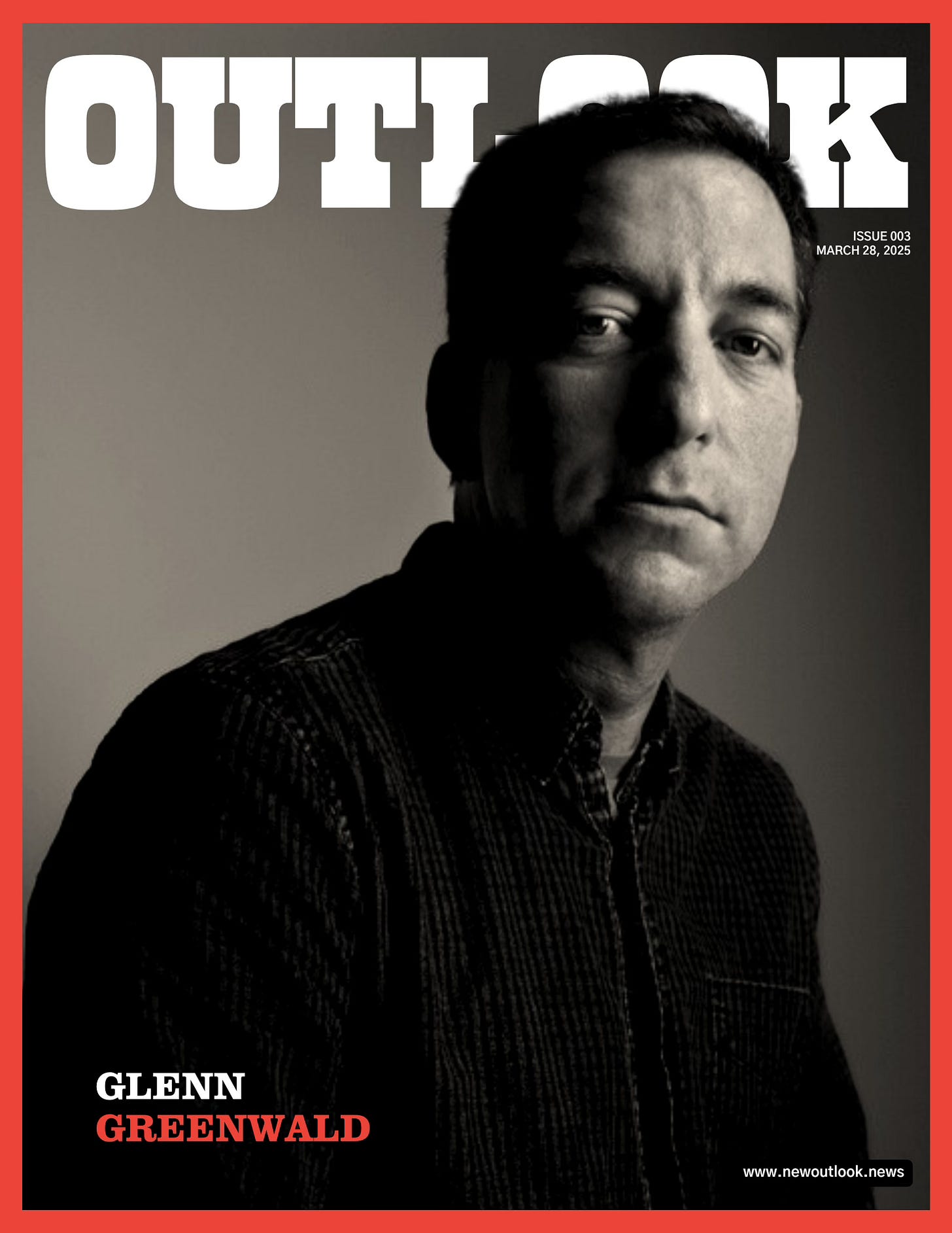New Media's Top 10 Independent Voices: Glenn Greenwald
Award-winning independent journalist captive to no dogma or faction.
Here are the final five leading independent voices, in no particular order. Quality journalism like this takes time and effort. If you appreciate work like this, support it by subscribing to New Outlook and unlock more special content.
“A key purpose of journalism is to provide an adversarial check on those who wield the greatest power by shining a light on what they do in the dark, and informing the public about those acts.” —Glenn Greenwald
FROM lawyer and blogger to award-winning investigative journalist, Glenn Greenwald’s career trajectory has been nothing short of remarkable. In the span of two decades, his work has greatly contributed not only to the preservation of investigative and unbiased journalism—amidst an industry rife with so-called journalists who routinely abdicate their responsibilities for political access—but to the preservation and protection of civil liberties, one of his primary focus issues as a lawyer and journalist.
Greenwald’s meteoric rise to becoming synonymous with adversarial and independent journalism came in June 2013 when he published the first of many exclusive stories on the National Security Agency’s (NSA) surveillance and data-collection programs, under the Obama administration, in the British newspaper The Guardian. Before then, Greenwald was writing fervently on Unclaimed Territory, a blog he launched in 2005 dedicated to shedding light upon “government surveillance and the prosecution of journalists,” according to a New York Times profile on the journalist. His blog would later be picked up by the news website Salon, where he continued to write, in excoriating fashion, on political corruption, propaganda, and foreign policy abuses before ultimately landing a position as contributing columnist at The Guardian. In all of his experience as a journalist, he’s managed to have a privilege—one that he’s routinely negotiated as a stipulation of having his work featured on major institutional platforms—that very few journalists experience during their career: he is never required to report to an editor, or have his work pre-approved before publishing. On this privilege, Kerry Lauerman, former editor in chief at Salon said “It basically is unheard of, but I never lost a moment of sleep over it. He is incredibly scrupulous in the way a lawyer would be — really, really careful.” The only occasions where this rule was softened were during massive stories, such as Snowden’s NSA story, which often involved several complex moving parts and a collaborative approach.




